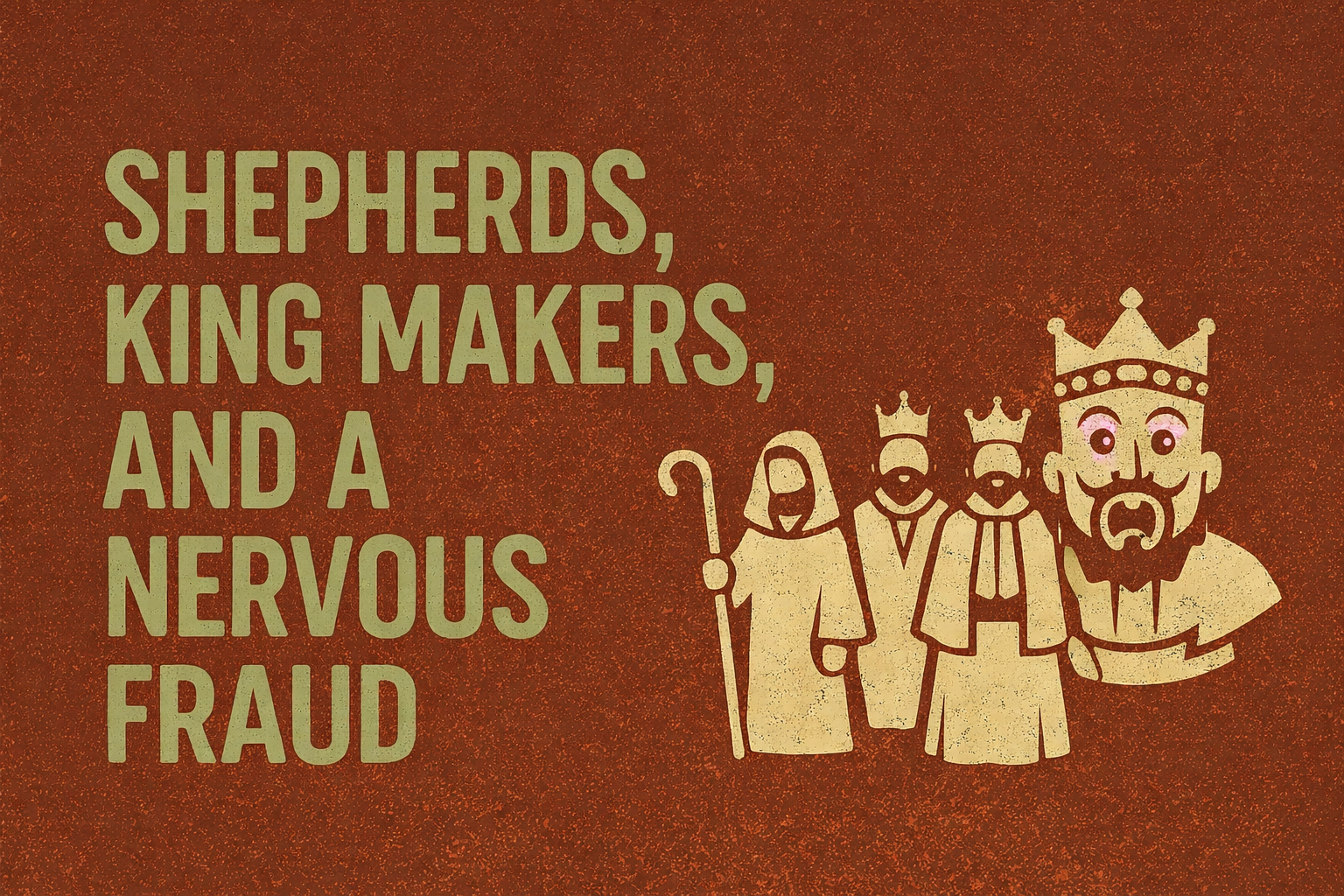This is part two of three in a series on Isaiah 30.
“For thus said the Lord God, the Holy One of Israel, “In returning and rest you shall be saved; in quietness and in trust shall be your strength.” But you were unwilling, and you said, “No! We will flee upon horses”; therefore you shall flee away; and, “We will ride upon swift steeds”; therefore your pursuers shall be swift.” Isaiah 30:15-16
In part one of this series on Isaiah 30, we examined Israel’s idolatry, the spirits of rebellion and rejection, and the LORD’s grace in judgement. If you missed it, you can read it here. I urge you to move through it before you come to this piece.
Many people ask, like the Philippian jailer in Acts 16:30 “what must I do to be saved?” Many answer with verses such as Romans 10:9, the classic John 3:16, and of course Paul’s answer in Acts 16:31 – “believe in the Lord Jesus and you will be saved.” These answers are certainly warranted and true. They are in Scripture and are consistent. Sometimes, though, I, along with others, find these verses rather simple and desire more comprehensive direction.
We find our answer in Isaiah 30:15. How will you be saved? “For thus said the Lord God, the Holy One of Israel, “In returning and rest you shall be saved” (Isaiah 30:15). Returning and rest? How is that congruent with “believe in the Lord Jesus?”
Contextually, Isaiah relays the word of the LORD to Israel as the Assyrians loom in siege and Israel abandons trust in the LORD in favor of belief in Egypt. Israel alienate themselves from the LORD in sin and face grave danger. They feel weak under the heavy oppression of the Assyrians military prowess. They need someone or something to save them from themselves and strengthen them against their opposition.
Isaiah’s word from the LORD meets both qualifications, and he distinguishes between the particulaties of “saved” and “strength.” “In returning and rest you shall be saved, in quietness and in trust shall be your strength” (Isaiah 30:15). Simply, the LORD saves those who return to him.
Every single person flees him. Scripture calls this leave of absence from his presence, direction, and commandments sin. When we return, we call him LORD, right, and good, and ourselves wrong, sinful, and in need. In the same way that Paul commands the Philippian jailer to believe, to return is to believe in the saving grace and redemption that comes through Jesus Christ.
We must also rest. When we rest in the LORD, we admit that we are powerless and all that we have comes from him. We confess that he is LORD and we are dust. We become dependent on him for all things, including our salvation.
We will find strength in quietness and trust. Quietness and trust return us to the LORD. We do not need to speak, for he has spoken. We do not need to make a show of ourselves, for in him we have all the provision that we will need in every situation. We do not need to find our solution, for he is and has the solution. We do not need to fear, for we know that he cares for us. In quietness, we find him. When we find him, we realize that we can, and want, to trust him. Quietness and stillness create space in us for trust, which will be our strength (Isaiah 40:31). Trust will not be shaken, for when we believe in the sovereign goodness of our Father in all things, we can and will face any obstacle, opponent, or persecution with confidence, even through pain.
The LORD’s offer in these verses seems impossible to turn away. It is like a great feast waiting to be consumed. Yet, in Israel’s stubbornness (Isaiah 30:1) the LORD says, “but you were unwilling” (Isaiah 30:15). Israel not only rebels against him, but they turn him away out of a spirit of rejection. The spirit that “says to the seers, “Do not see,” and to the prophets, “Do not prophesy to us what is right; speak to us smooth things, prophesy illusions, leave the way, turn aside from the path, let us hear no more about the Holy One of Israel” (Isaiah 30:10-11).
While a spirit of rebellion considers and listens to the Holy Spirit and the things of God before a move into disobedience, a spirit of rejection refuses to hear from God at all and desires nothing more than to squash his voice forever. The spirit of rebellion will walk the road of God when it intersects with the road that it desires, but the spirit of rejection heads as far away as possible from the way of the LORD.
The spirit of rejection not only turns away, but it truly believes that it “will flee on horses” and “will ride upon swift steeds” as if it can out-run, out-gun, and overcome the power of the LORD in utter arrogance (Isaiah 30:16). In this place, you become your own god, or “the master of [your] fate and the captain of [your] soul.” The spirit of rejection dead-ends firmly into the justice and wrath of God. He cannot be out-run. He will not be out-done. The Israelites may indeed “ride upon swift steeds,” but the LORD promises that “therefore your pursuers shall be swift” (Isaiah 30:16). The pursuers that he sends after those who flee will overtake them, for no one can escape his presence or his jurisdiction (Psalm 139:7). The spirit of rejection, then, rejects not just the LORD, but rejects his blessing and his goodness. It aims for his punishment. It knows the consequences and seeks them, all for the worthless treasure of self-preservation and the convenience of the seen world.
When we reject him, we not only reject his commandments, but his grace, his blessings, his strength, and his love. But, he will save those who return and rest in him. He will strengthen those who quiet themselves and put their trust in him. How indescribable to be saved and strengthened by the God of the universe! How sweet to know him and be loved by him. Do not flee a God that cannot be flead, but draw near to a God that cannot fail you.




